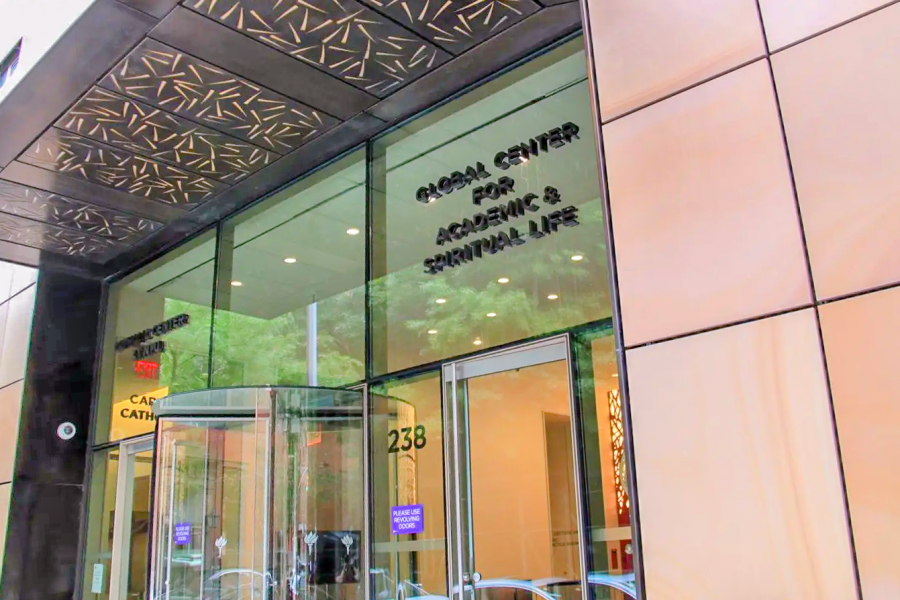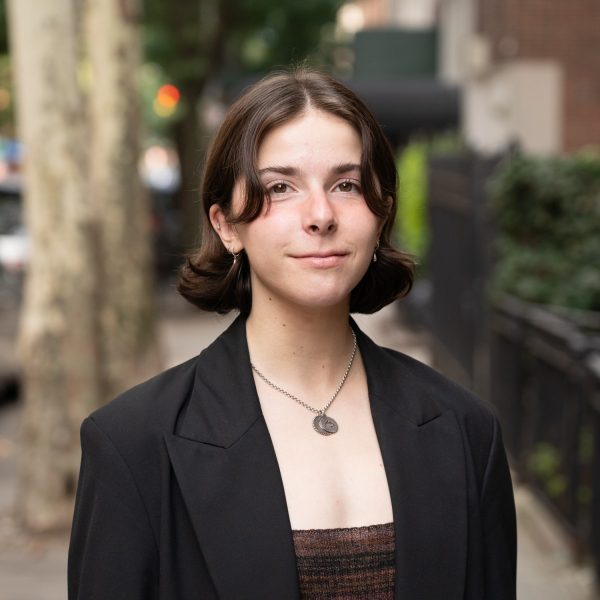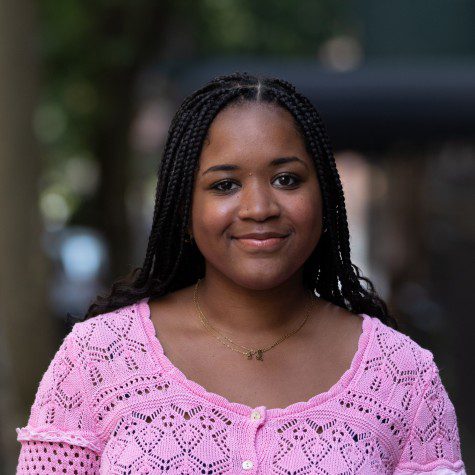Student gov’t proposal demands suspension of NYU Tel Aviv
The proposed resolution, brought forward by two members of the Student Senators Council, calls for NYU to shutter its Tel Aviv site until Israel repeals a law targeting foreign critics of the state. The council also discussed transportation costs, housing affordability and accommodations for Muslim students at its March 10 meeting.
The Student Senators Council met on Thursday, March 10, to discuss new proposed resolutions. They called for the closing of the NYU Tel Aviv site, improving facilities for Muslim students, and lowering student transportation costs. (Staff Photo by Alexandra Chan)
March 11, 2022
Two representatives of NYU’s student government proposed a resolution calling on the university to suspend its study away site in Tel Aviv during a Student Senators Council meeting on Thursday, March 10.
The resolution demands that the NYU Tel Aviv site be shuttered until an Israeli law banning foreigners who have knowingly issued a public call for a boycott of Israel from entering the country is repealed.
“If it is the will of student government to push this forward, and the university at whatever level of administration and board refutes this, that is an explicit statement that they do not believe that the ethical policies and moral standards are necessarily applied equally to all marginalized students,” John Kallas, the senator at-large for Middle Eastern and North African students, said during the meeting.
The proposal, which was co-written and presented by Kallas and Sarah Abdalla, the alternate senator at-large for Middle Eastern and North African students, said that the entry law hinders the ability of students — specifically those of Arab, Palestinian or Muslim descent — to study away at NYU Tel Aviv. The proposal also claims that NYU has violated its Code of Ethical Conduct and Non-Discrimination and Harassment Policy by continuing its operations at the Tel Aviv site.
“It is our responsibility to keep bringing this up, keep pushing for this and keep fighting for students — for our students — to create a very holistic and inclusive environment and not let the university preach diversity and inclusion and wellness,” Abdalla told WSN. “This is something that they advertise a lot when they try to get students to apply to this university, even though their actions go against those policies.”
Abdalla said the law has discouraged Palestinian and Arab students from applying to study away at NYU Tel Aviv because they are concerned they will not be allowed to enter Israel. Kallas said that students being barred from entry represents an “ethical failing” that NYU must address.
“I’m sure everybody here, especially the marginalized folks in the room, have experienced some sort of inequality when it comes to NYU’s policies,” Kallas said to the council. “I felt not listened to, not cared for, so this is our way of finally trying to push NYU to actually genuinely have to grapple with that fact.”
In a statement to WSN, NYU spokesperson John Beckman said the university is fully committed to its NYU Tel Aviv program. He said the resolution misinterprets NYU’s anti-discrimination policy and said that academic boycotts, including the proposed shutdown of the campus, oppose the university’s principles of academic freedom.
“We are unaware of a single instance in which an NYU student who has sought to study at NYU Tel Aviv has been refused the opportunity to do so,” Beckman wrote. “By contrast, we have had students unable to get visas to study at NYU’s U.S. campuses — by the logic of the resolution, we should shut down our campus in Greenwich Village, which I doubt many people would consider a reasonable response.”
In the past, NYU departments and independent groups of faculty have pledged non-cooperation with the Tel Aviv study away site over the same immigration law. The university’s Social and Cultural Analysis department said in 2019 that it would not sponsor faculty teaching at NYU Tel Aviv or use its resources to facilitate faculty exchanges between itself and the site. In 2021, more than 600 faculty, students, staff and alumni from across the university also pledged non-cooperation with the site.
The Student Senators Council also discussed resolutions that focused on reducing transportation costs, addressing housing affordability and providing more accommodations for Muslim students on campus.
Jaree Zaidi, the alternate senator at large for Muslim students, provided updates on improvements to the experiences of Muslim students at NYU, including recently approved plans to install new bidets in the Global Center for Academic and Spiritual Life.
“For Muslim students, they need to maintain a state of purity to perform obligatory prayers,” Zaidi said. “This created a dilemma for the Muslim community on campus where a lot of students weren’t able to perform the prayers or utilize facilities offered by the Islamic Center because of the lack of these facilities.”
Leadership of the Islamic Center at NYU agreed to install bidets in single-stall bathrooms on the first three floors of the Global Center building after meeting with Zaidi. Zaidi is also working to provide academic and dining accommodations to Muslim students during Ramadan.
Ryan Carney, the Financial Affairs Committee chair, also addressed a previously proposed resolution seeking to lower public transportation costs for students. Since the resolution’s introduction, it was updated to include additional schools in New York City.
“It’s just the same information that was in the resolution, but making it more inclusive with other schools,” Carney said. “We’re talking about SUNY subway stations that students frequently use. So it’s not just NYU-specific now, it’s more for general college students.”
Carney plans to reach out to other universities, New York state senators, the New York City Council and Mayor Eric Adams to promote legislation addressing transportation costs. The resolution was passed with a majority vote by the Student Senators Council.
Stephanie Pianka, the university’s chief financial officer, answered questions about lowering the cost of on-campus housing. Pianka said that housing costs have increased by 2% on average over the past six years.
“We will continue to look for ways to keep the increase in housing [costs] as reasonable as possible,” Pianka said. “We’ll look to fundraise and [launch] other initiatives to increase our scholarships and aid that we can provide to our students to offset those increases.”
Contact Carmo Moniz at [email protected] and Lauren Ashe at [email protected].



























































































































































John • Mar 11, 2022 at 2:58 pm
So basically Mr Beckman destroyed the trash argument of shutting the campus there down